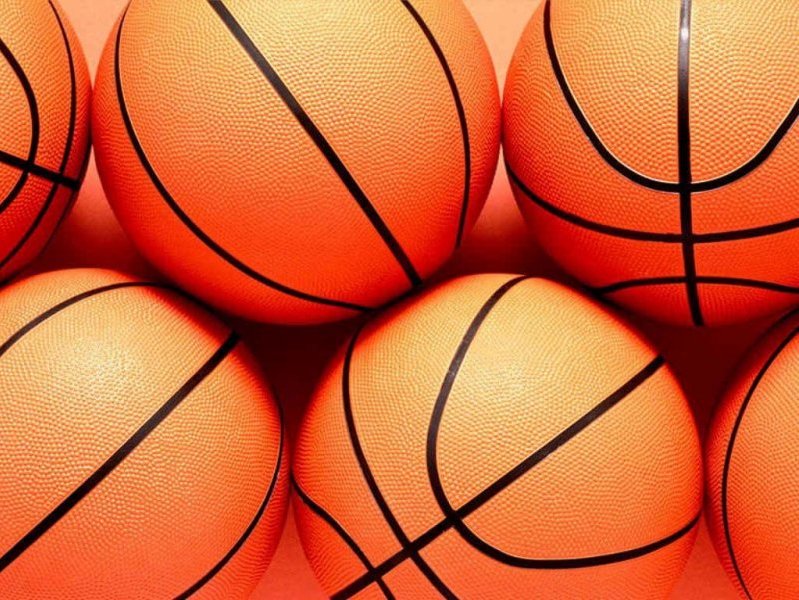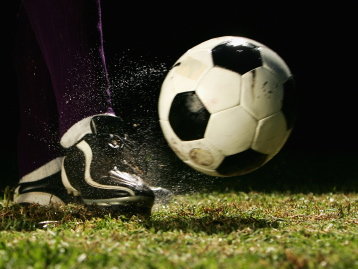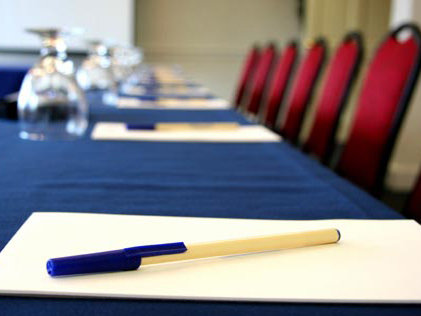With the WIAA boys' state high school basketball tournament finals starting today in Madison, Milwaukee's City Conference is represented by the Milwaukee Hamilton Wildcats, who are looking to uphold a proud and powerful public school athletic tradition.
Meanwhile, private school Milwaukee Marquette looks to win a fifth consecutive tournament game over a City Conference opponent, coming into tonight's game against Hamilton after consecutive impressive victories over Milwaukee King, Washington, Riverside and Bay View. This is also the Hilltoppers' first WIAA tournament appearance.
Several other conferences and areas of the state are perennial powers in various sports, but there is something special about the City Conference of Milwaukee when it comes to high school basketball in Wisconsin. While the conference has a sports' legacy dating back more than a century, boys' basketball in Milwaukee really came of age in the 1960s.
Hamilton coach Tom Diener appreciates the city's basketball reputation as much as anyone, having coached in the city for 17 years and winning five state titles at Milwaukee Vincent between 1996 and 2001. Now in his second year at Hamilton, Diener now has the Wildcats running, shooting and defending with the state's basketball elite. The Wildcats are making their first state tourney appearance since 1992 and fourth overall, including winning the first state tournament with a division format in 1972.
"We definitely want to represent the City Conference and show our best in Madison," Diener said. "Marquette is in a pretty unique situation to have it lined up that way against the City schools this year. We feel we are the best conference in the state, so we want to step up."
Besides Diener's success at Vincent and now at Hamilton, other city state tournament powers have included Milwaukee King and Washington. King has won five state titles, including four under current coach Jim Gosz since 1991. Gosz has coached at King for 20 years and believes that basketball power has evolved in the conference over that time.
"When I started, it was pretty much Washington and King, and then Vincent became a power," Gosz said. "Now, Hamilton, Riverside and others are coming, so there are five or six teams who can beat anyone on a given night."
Along with those traditional city powers, other schools like Bay View, Bradley Tech, Riverside and South Division have had periods of regular season success in recent years. At the state tournament level, Washington won four titles between 1985 and 1993, while Milwaukee Tech, North Division and Madison all won state between 1979 and 1983.
Diener believes the level of competition has increased in the City during his tenure. "I think the coaching from top to bottom has gotten better," he said. "Coaches are seeing the success that you can have, so there's interest from more good, young coaches. The game used to be more offensive-minded with scores in the 80s and 90s. Now, you're seeing coaches with more focus on shot selection and defense, so scores are in the 40s and 50s."
Milwaukee Public Schools Commissioner of Athletics Bill Molbeck is obviously proud of the conference's basketball tradition.
"It's a unique story," Molbeck said. "We consistently send some of the best teams to state, but there is a lot of good basketball talent in southeastern Wisconsin."
The City's dominance of state basketball really goes back to the old Milwaukee Lincoln teams, which won five state titles between 1959 and 1967, while producing elite players like Freddie Brown and Clarence Sherrod. Lincoln closed its doors as a high school in 1979, giving way to the emergence of the Washington, King and Vincent dynasties.
With all its history and success, City Conference basketball and other sports face new challenges from a variety of internal and external sources. Milwaukee South coach Ty Moseler has seen the more recent changes during his eight years as Cardinals coach.
"It goes in cycles," Moseler said. "Years ago, I think the conference was stronger from top to bottom. Now, with open enrollment and more kids going to private schools, there might be just as many Milwaukee kids playing at State, but it just doesn't say ‘Milwaukee' on their chest."
The school open enrollment program and an increased emphasis on suburban youth basketball feeder programs are also factors in making other local schools more competitive with the City Conference.
"The suburbs have done a better job of developing select teams and you see the results with the emergence of their programs at the high school level," Gosz said. "The city doesn't have the same level of organization at the youth level, so some of the suburban teams have closed the gap there. Often, the kids are playing the high school's system in their youth programs, so their roles are already defined."
Moseler agrees with Gosz on the impact of the suburban youth programs, and also feels it has increased racial diversity in suburban programs. "Things have evolved in that sense," Moseler said. "With more integration, open enrollment and kids playing in the youth programs, you're seeing more diversity."
Unlike most conferences, enrollments in the 14 City schools vary greatly from around 600 to more than 2,000. While the City Conference has enjoyed nearly all its State success at the Division I level, it might only me a matter of time before City schools start making noise in other levels of the WIAA tournament. The City also has some smaller, independent affiliate schools like Ronald W. Reagan College Prep, Wisconsin School of Lifelong Learning and Milwaukee School of Languages.
School reform issues being considered and debated by MPS and other government officials could also impact the future of City basketball and other sports, according to Molbeck. In addition, there is talk of WIAA proposals to expand the State basketball tournament to five divisions, but taking four teams to the State tournament instead of the current eight.
"We've obviously had success at Division I," Molbeck said. "Some of our other schools are doing better, but not at the state level yet. We have tough competition in the conference night after night. It's a challenge, but a good challenge."







